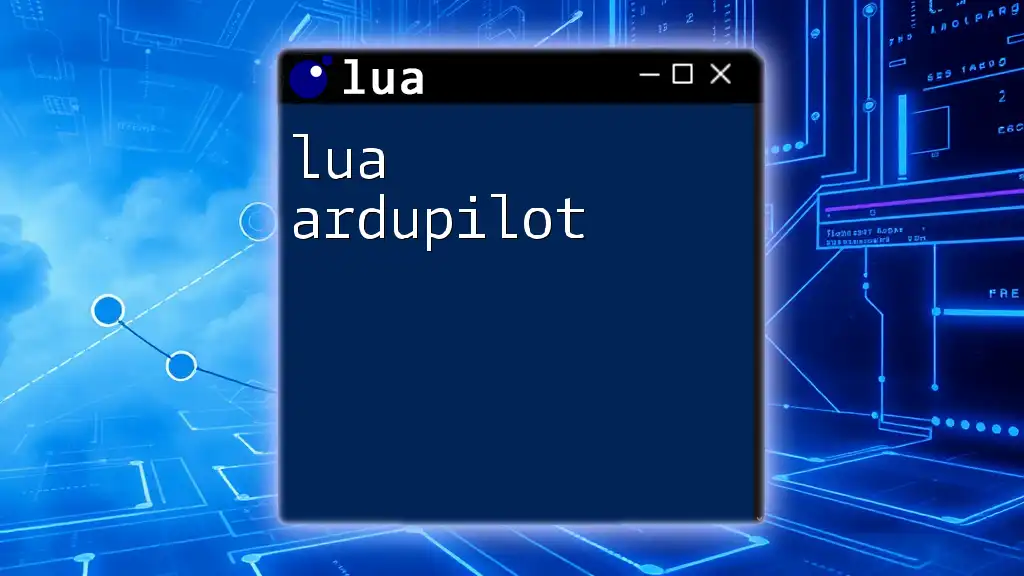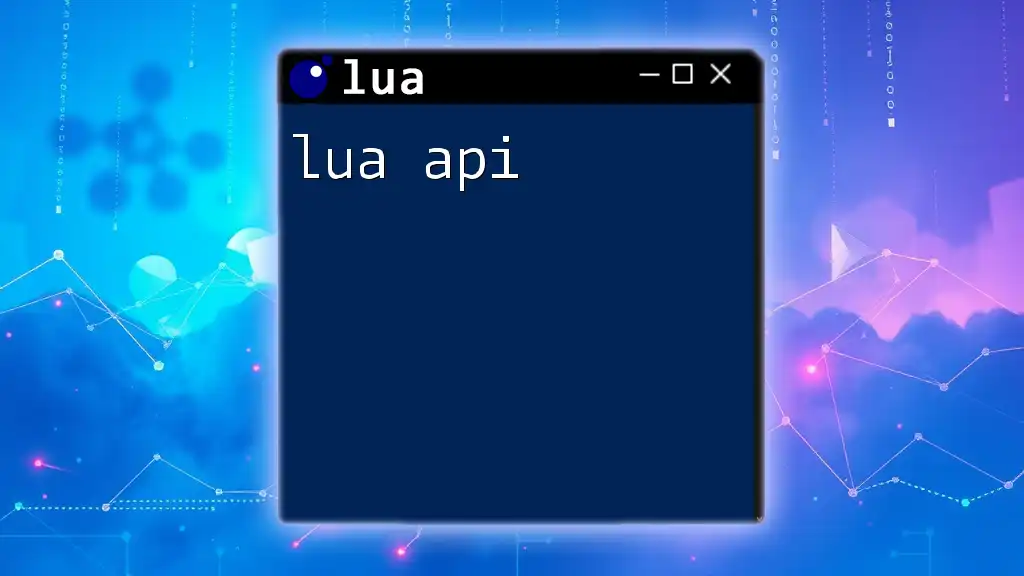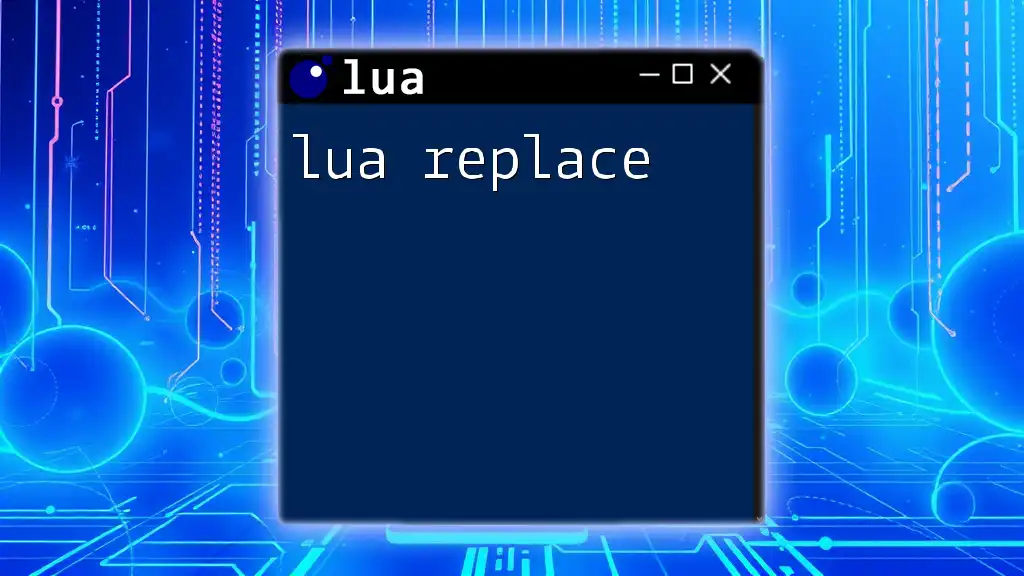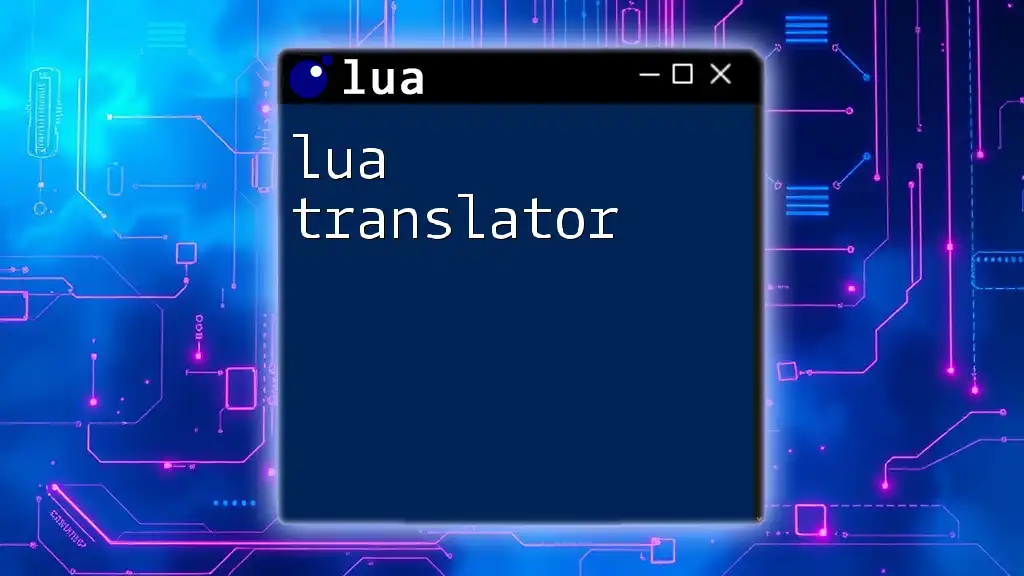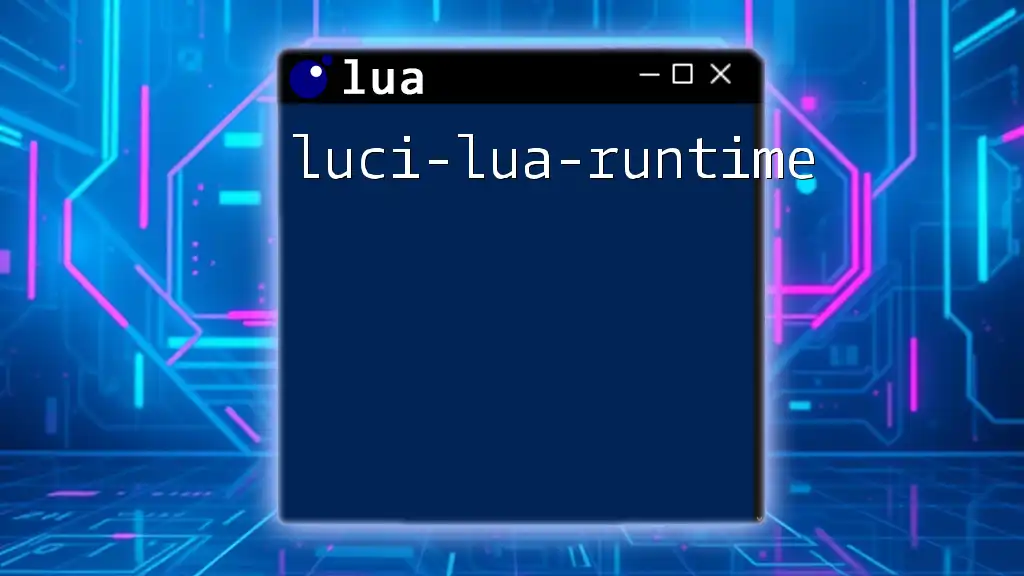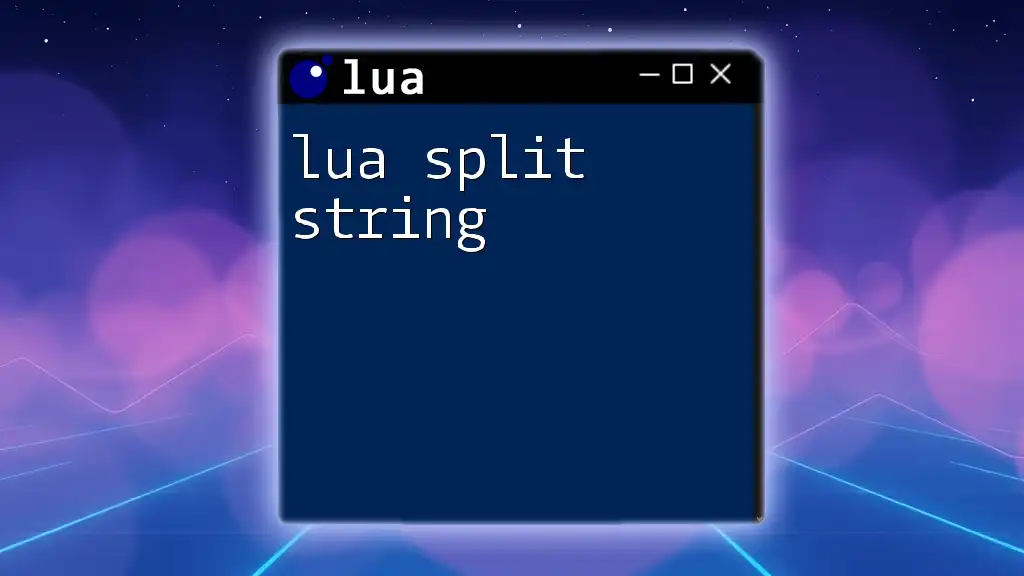Certainly! Here's a concise explanation and a code snippet for "Lua ArduPilot":
Lua is a lightweight scripting language that allows users to create custom scripts for controlling and automating ArduPilot flight behaviors.
-- Simple Lua script to control a drone's altitude
local targetAltitude = 100 -- Set target altitude to 100 meters
local currentAltitude = getAltitude()
if currentAltitude < targetAltitude then
setThrottle(0.8) -- Increase throttle to gain altitude
else
setThrottle(0) -- Maintain altitude
end
Understanding the Basics of Lua in ArduPilot
Why Use Lua with ArduPilot?
Using Lua with ArduPilot significantly enhances the capabilities of your vehicles. Lua serves as a powerful scripting language that allows you to customize flight behaviors, adapt configurations, and even manage complex operations. This flexibility can be invaluable for developers and enthusiasts who wish to expand the functionalities of their drone, rover, or boat.
Setting Up Lua Environment
Installation Requirements
Before you can dive into scripting with Lua, ensure that your hardware and software environments are ready. The following prerequisites are necessary:
- A compatible flight controller that supports Lua scripting.
- An installation of ArduPilot firmware that includes Lua support.
- Basic familiarity with command-line operations to manage file transfers.
How to Load Lua Scripts onto ArduPilot
Loading Lua scripts onto your ArduPilot can be done through several straightforward steps. To successfully transfer a Lua script, follow these instructions:
- Connect to Your Flight Controller:
- Ensure your device is connected to your computer, preferably using USB.
- Transfer the Lua Script:
- Use a command similar to the following, adjusting paths and filenames as necessary:
scp your_script.lua user@your_controller_ip:/path/to/scripts/
This command securely copies your script to the designated directory on your ArduPilot setup, enabling it to be executed during the vehicle's operation.
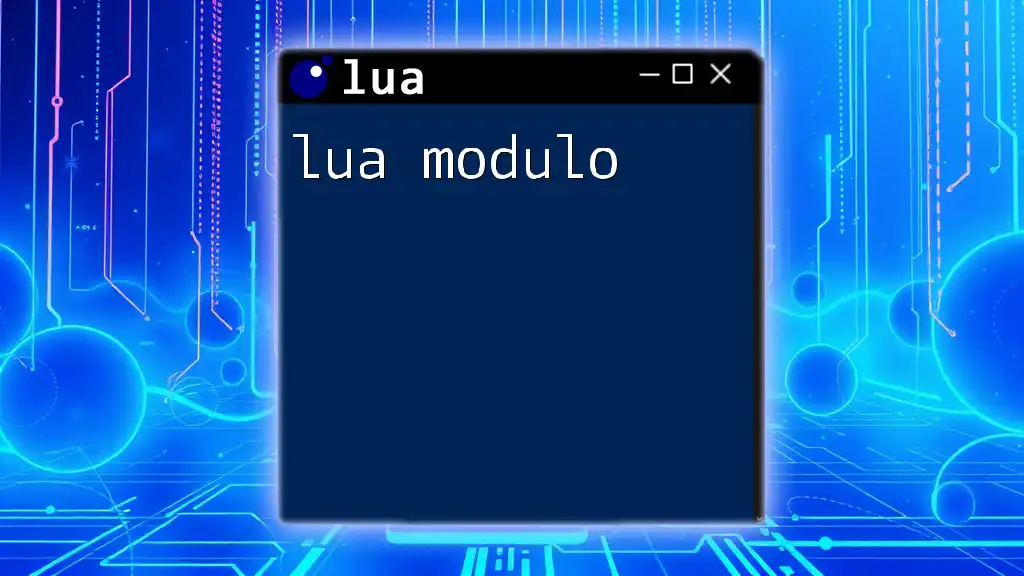
Core Lua Concepts
Lua Syntax Overview
To leverage the power of Lua in ArduPilot, it's essential to understand the basic syntax. Lua is known for its simplicity; it uses common programming constructs like variables, data types, and control structures. Here are some key points to remember:
- Variables: Declared easily, allowing you to store values.
- Data Types: Include nil, boolean, number, string, function, and table.
- Control Structures: Use `if`, `for`, `while`, and `repeat` for flow control.
Functions and Libraries in Lua
Creating Functions in Lua
Functions help modularize your scripts, making them easier to manage. Here’s an example of a simple Lua function:
function greet()
print("Hello, ArduPilot!")
end
greet()
When executed, this script will output "Hello, ArduPilot!" to the console, introducing you to function creation.
Using Built-in Libraries
Lua provides various built-in libraries that can enhance your scripting experience in ArduPilot. Common libraries include:
- math: For mathematical operations.
- string: For string manipulations.
Familiarizing yourself with these libraries can greatly enhance your ability to solve problems effectively in your scripts.

Working with ArduPilot’s API
Overview of Lua API for ArduPilot
Familiarity with ArduPilot’s Lua API is crucial for effective scripting. The API includes various functions that allow interaction with the vehicle's system, enabling you to read sensor data, control vehicle movements, and respond to specific events.
Accessing Sensor Data
One of the fundamental functions of any vehicle's flight management system is to read and respond to sensor data. In Lua, you can access sensor values using ArduPilot's API. For instance:
local altitude = sensor:getAltitude()
print("Current Altitude: " .. altitude)
This snippet retrieves the current altitude from the vehicle's sensors and outputs it to the console, giving you real-time data.
Controlling Vehicle Behavior
Lua allows you to control your vehicle dynamically. For example, you can change the mode of your vehicle using the following command:
vehicle:setMode(3) -- 3 corresponds to Guided mode
Using this line of code, you can effortlessly switch between flight modes, adapting how the vehicle behaves in various scenarios.
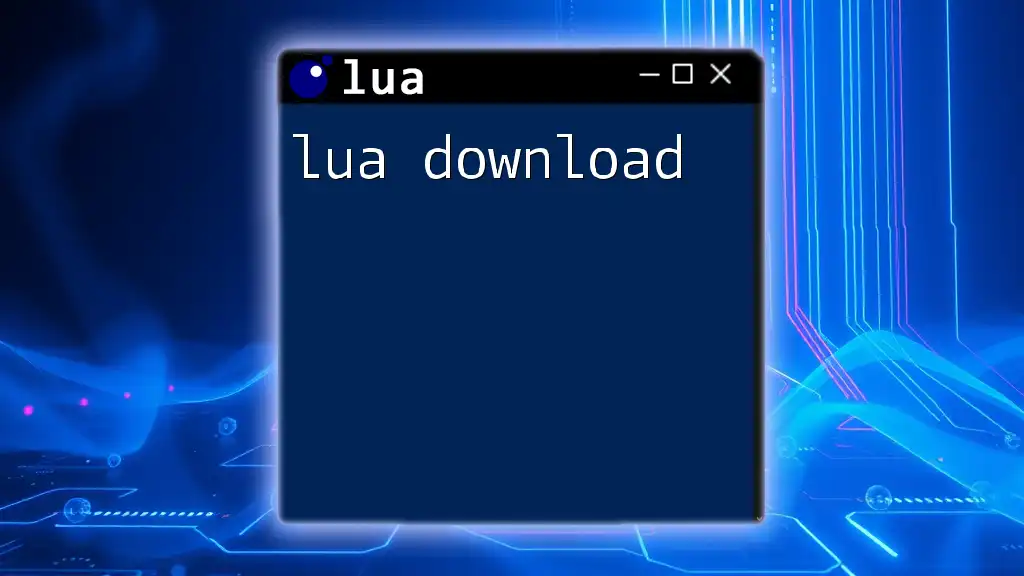
Creating Your First Lua Script for ArduPilot
Step-by-Step Script Development
Developing your first Lua script requires careful planning. Begin by defining a clear goal for what your script will accomplish; for instance, you might want to log altitude data at intervals.
Code Walkthrough
Here's a simple example script that logs altitude data every few seconds:
local log_interval = 5 -- seconds
function logAltitude()
while true do
local altitude = sensor:getAltitude()
print("Altitude: " .. altitude)
wait(log_interval)
end
end
logAltitude()
In this code, the function `logAltitude` continually obtains the altitude every five seconds and prints it to the console. Practicing with such scripts lays a solid foundation for more complex operations.
Running and Testing the Script
After creating your script, it’s critical to monitor its outputs effectively. You can access the ArduPilot console through a ground control station or terminal application to observe any printed output. This process will help you identify any potential issues, allowing for swift troubleshooting and adjustments.
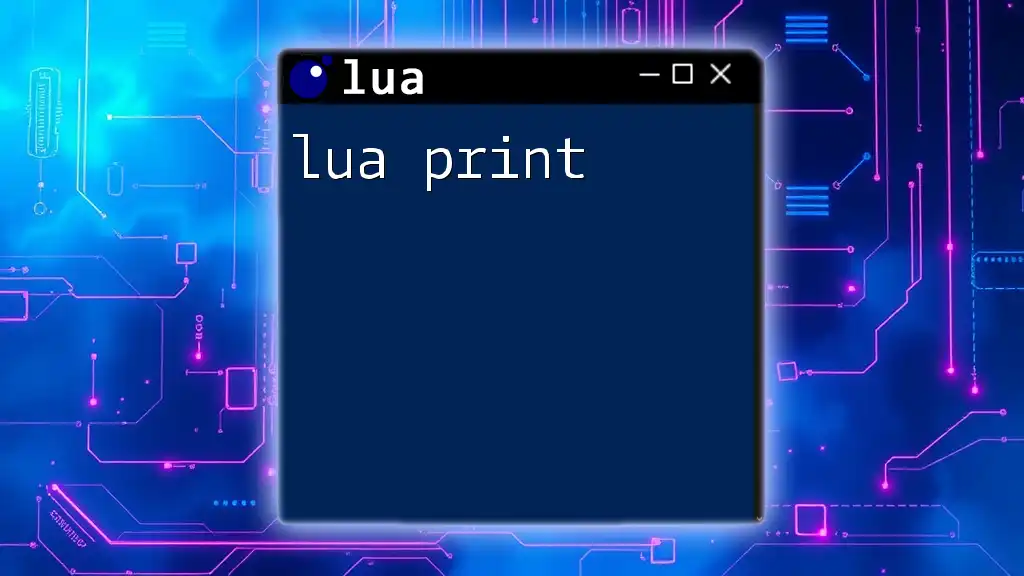
Advanced Lua Scripting Techniques
Error Handling
In the world of programming, errors are inevitable. Effective error handling can save you from crashes or misbehavior of your vehicle. In Lua, you can use `pcall` for protected function calls. Here’s how it works:
local success, message = pcall(someFunction)
if not success then
print("Error: " .. message)
end
This snippet tries to call `someFunction` and captures any errors. If an error occurs, it prints the associated message without halting the entire script.
Creating User-defined Events
Advanced Lua programming includes setting up user-defined events. This can involve timers and callbacks to execute code periodically or under specific conditions. For instance, you can use a timer to trigger an event at regular intervals, making your script adaptive to various situations.

Best Practices for Writing Lua Scripts in ArduPilot
Efficient Coding Practices
As you advance in Lua scripting, it’s crucial to adopt effective coding practices. Keeping your code organized and modular enhances readability, making it easier to debug and maintain.
Documentation and Commenting
High-quality documentation and commenting in your scripts serve a dual purpose: they assist future you in understanding the code and help other programmers who might work on the same project. Descriptive comments explain not only "what" your code does, but "why" you made specific choices.

Resources for Learning and Community Support
Online Documentation and Tutorials
To expand your understanding of Lua scripting within ArduPilot, start by exploring the official ArduPilot documentation, which offers extensive resources on the Lua API and coding guidelines. Additionally, various online tutorials and forums provide helpful insights and sample scripts.
Staying Updated
Stay engaged with the community to keep your knowledge current. Following relevant blogs, subscribing to websites dedicated to ArduPilot, and participating in social platforms like Discord or dedicated forums can significantly enhance your learning experience.
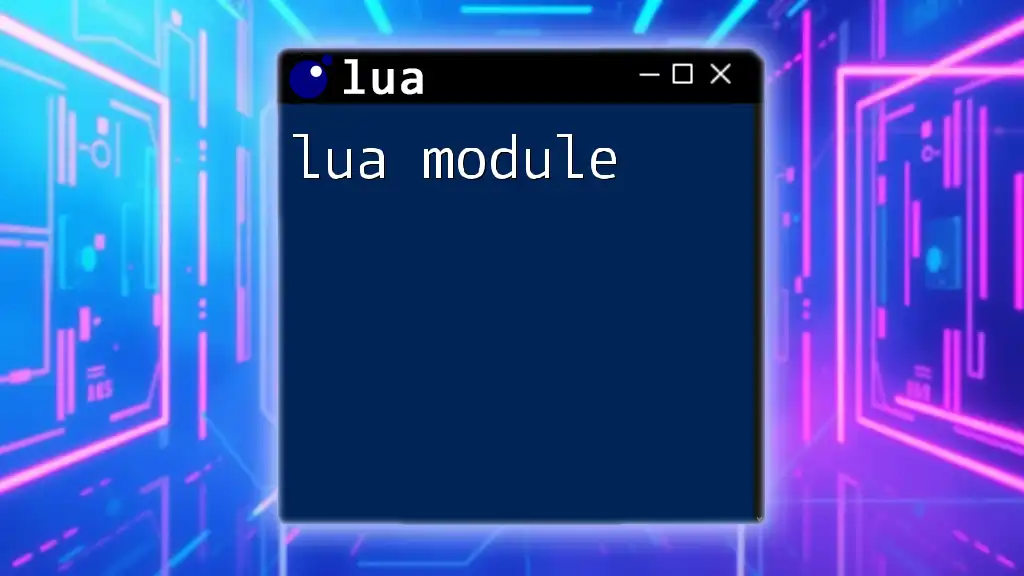
Conclusion
In summary, incorporating Lua into ArduPilot opens a world of customization and control, facilitating advanced vehicle behaviors and personalization. This guide serves as a solid launching point for your exploration into Lua scripting, empowering you to create dynamic and responsive vehicle configurations. Embrace the learning curve and enjoy the expansive possibilities that Lua scripting offers in enhancing your ArduPilot experience.

